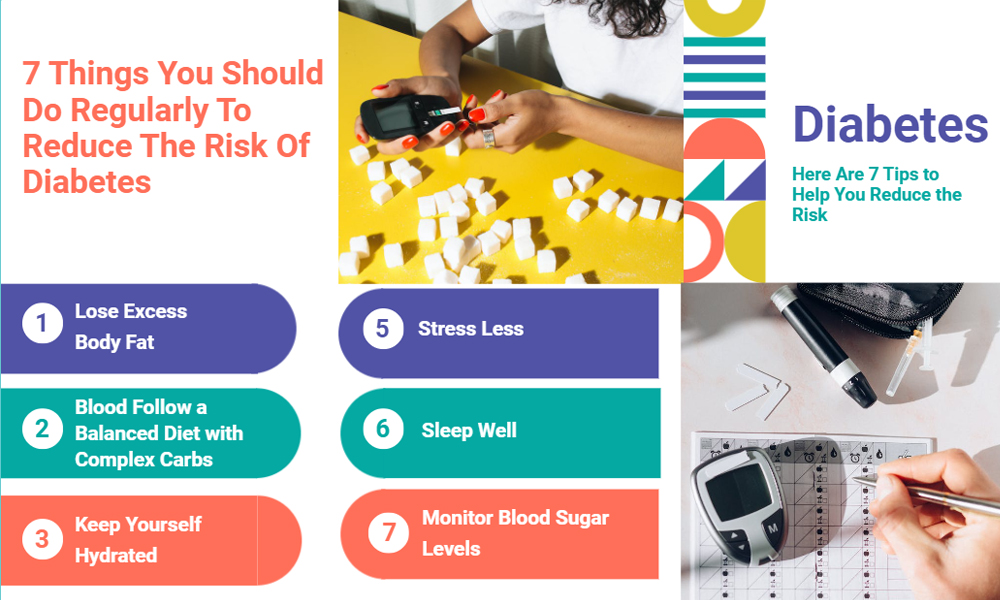
Table of Contents
Introduction of Diabetes
Diabetes, one of the most common non communicable lifestyle disorder has affected about 72.9 million people in India in 2017 (International federation of Diabetes), and is expected to rise to 134.3 million by the year 2045. The prevalence of diabetes in metropolitans has increased to over 20% at present.
A chronic lifestyle disease of such a magnitude and no cure has latched itself onto our healthcare and is here to stay. With no interventions and no precautionary measures it will continue to thrive on the ignorance or lack of knowledge of its victims. Curative measures currently available help maintain blood glucose levels to near normal and help in avoiding other health complications.
A large proportion of diabetes cases are preventable. Simple lifestyle measures have been shown to be effective in preventing or delaying the onset of type 2 diabetes. Understanding the underlying causation factors and their effects on the health and wellbeing of an individual in addition to the ones medically established is what the generations now have to seek and explore in order to prevent conditions like diabetes. Lifestyle behavioural changes and healthier choices that we make by being fully aware of self and the environment is the way forward to reduce the risk.
Here Are 7 Tips to Help You Reduce the Risk

1. Lose Excess Body Fat
: Being overweight is a big risk factor for diabetes. Understanding the gap between the intake and output is the key step in understanding how you have reached the weight or the level of fat you are currently at. It’s not about being body shamed or following a set body appearance standard. Its more about the proportion of various parameters be fat %, muscle %, water % that is of prime importance. Adopting healthier lifestyle as opposed to dieting on and off is what will go a long way. Small lifestyle choices can make a huge difference in controlling weight and maintaining long term health.
2. Follow a Balanced Diet with Complex Carbs
: Choosing foods from all the food groups and trying to incorporate healthy plate eating habits with incorporation of variety of fruits and vegetables, good quality protein, healthy fat and adequate carbohydrates can prove to be beneficial. Avoid high fat foods, foods rich in trans fat(hydrogenated fat), processed foods and excessive amounts of sugar. Incorporating complex carbohydrates like oats, bran, maize, buckwheat etc can help lower blood glucose levels and yet can serve as effective sources of energy. These carbohydrates take longer to digest, give satiety and provide necessary energy without compromising on taste and good health.
3. Keep Yourself Hydrated
: Eating variety of fruits and vegetables not only loads you with innumerable antioxidants but also helps maintain hydration levels. Drink at least 7-8 glasses of water every day. Cut down on sugar-sweetened beverages. Choose healthier options like refreshing lassi, coconut water, nimbu pani over colas, packaged juices and ready to use instant mixes. Studies have linked sugar-sweetened beverages with obesity and diabetes. Cutting them out of the diet can help reduce the risk of ailment.
4. Move Your Body
: Physical inactivity raises the risk of diabetes. Exercise renders cells more sensitive to insulin. Choosing and enjoying the kind of movement you cherish and thoroughly live in can do the trick. Opt for an exercise that makes you forget that you are exercising, as your go to option. Entering the space that provides you comfort and enjoyment as well as helps to shed kilos will be something that will be doable and sustainable. Incorporate exercise as a constant activity undertaken at least 5 times a week practiced for about 35-40minutes. You can always shift focus to strength training, flexibility and endurance training once you have made the extra fat go. Make sure you train and practice under the guidance of a trained and certified personnel.
5. Stress Less
: Stress response triggers the release of several hormones that can cause imbalance not only in your sugar levels but also in other blood parameters. Shift your behaviour and mindset towards a more peaceful sense of well being. Nurture inner voice and practice stress reducing activities like breathing technique, meditation, physical activity. Seek social support and talk it out as and when required.
6. Sleep Well
: Chronic sleep deprivation and poor quality sleep increase the risk for diabetes and obesity. Try to establish regular bedtimes. Make sure you get enough sleep. 7-8 hours is ideal. Not getting enough rest not only affects your body – it influences how well you work and how much you enjoy life.
7. Monitor Blood Sugar Levels
: If you are at risk for diabetes, monitoring your blood sugar levels regularly can help you stay aware of any changes and take preventive measures. This is one of the most useful tips to reduce the risk of diabetes.
Conclusion
Adopting a proactive approach to health through key lifestyle practices can significantly reduce the risk of diabetes. By prioritizing the habits stated above, individuals can empower themselves to make lasting, positive changes that promote a healthier, lower-risk lifestyle. It is essential to consult with healthcare professionals and consider personalized guidance to tailor these recommendations to individual needs and circumstances for optimal diabetes prevention. Consult Weljii to know more about how to reduce the risk of diabetes.


